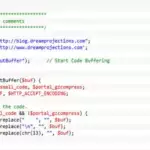Question: Who discovered Cell and How?
- Antoni van Leeuwenhoek
- Galileo Galilei
- Isaac Newton
- Robert Hooke
Answer: D. Robert Hooke
Who discovered Cell and How? Solution:
Robert Hooke discovered the cell in 1665 while observing a slice of cork under a microscope. He saw that the cork was made up of tiny compartments, which he called “cells”. Hooke’s discovery of the cell was a breakthrough in biology, and it led to the development of the cell theory, which is one of the fundamental theories of biology.
Please visit us to learn more about Questions and Information.




